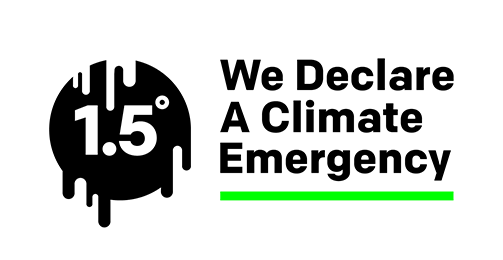Send a message 0333 344 5890 |
- Home
- Knowledge
- Learning Hub
- Do I really need to measure my carbon footprint?
Do I really need to measure my carbon footprint?
|
"It's a waste of time and money to measure my carbon footprint!" "I buy renewable energy so there is no need for me worry about my carbon footprint!" "It's too complicated to calculate my carbon footprint!" "We need to take action on carbon now, not waste time trying to measure it!" "My carbon footprint is too small to worry about!" These are some of the most common reasons that business owners give for not measuring their carbon footprint. In this article I will explore the pros and cons of measuring your footprint and ask you to think again about doing it in your business. |
Why you should not measure your footprint
"It's more important to reduce carbon than measure it"
It's hard to argue with this statement, and I wouldn't attempt to. There is no doubt that our goal needs to be to reduce our greenhouse gas emissions (of which the most important is carbon dioxide). If we carry on as we are the global average temperature is predicted to rise by 3-5°C by the end of the century. This will cause very extreme weather conditions and wildfires, leading to property damage, loss of life and food and water scarcity. It will cause significant sea-level rise, causing to land-pressures for crops, animals and people, leading to famine, strife and the phenomenon of "climate refugees".
Taking action to reduce carbon is critical to protecting our economy, our business and our way of life and we must not allow our attention to be drawn away from this by spending too much time of measuring or offsetting the emissions we produce today.
"Measuring my footprint is complicated, expensive and not very accurate"
This is a common concern. The Greenhouse Gas protocol for organisations runs to 418 pages over 3 parts. It identifies 22 categories of greenhouse gas emissions and uses a lot of jargon. Small business owners in particular don't have the time to learn how to do this.
Big businesses have traditionally turned to carbon consultants to help them, but they often have opaque fees structures that start in the thousands of pounds. There are calculators available for smaller businesses, but these are all different and it is difficult to know which one to use.
Whilst the methodology for carbon footprinting is well established, it is true that the research to establish the data for accurate measurement is lagging behind so calculations are often based on averages or estimates.
Given these concerns, it is understandable why businesses, especially small and medium sized ones, choose not to measure their carbon footprint. There are plenty of other concerns that seem more important right now.
"I'm already buying renewable energy and offsetting"
There is now little excuse for business and individuals not to buy renewable or green energy. The costs are very similar to non-renewable tariffs and all the major suppliers offer them alongside there are a proliferation of smaller specialist providers. It is very easy to change and for commercial users, energy brokers are able to offer very competitive prices. We would certainly advocate that all businesses (and individuals) do this.
Renewable energy is generated from sources that do not burn fossil fuels and that do not generate greenhouse gas emissions. Green energy also does not create pollution. So, it is understandable when people think that if their energy is renewable or green they don't need to worry about measuring and reducing their emissions.
Some businesses also offset their emissions to go "carbon neutral". This means that they invest in projects designed to save carbon somewhere else, so that overall they save as much carbon as they generate. If they are saving as much carbon as they create why worry about measuring and reducing it? There are many services available that allow you to do this without going to the time and expense of measuring your footprint.
Why you should measure your footprint
What gets measured gets managed
It's an old adage (some even trace its roots to the renaissance period) but no less true for that. If we measure something, it gives us the knowledge to start to understand it. If we are to reduce our carbon footprint we need to know what the sources of it truly are. We might think that this is obvious, "carbon emissions come from our use of energy don't they!" However, it turns out that for most businesses their direct use of energy accounts for less than half of their carbon footprint, often as little as 20%. So, where does the other 80% come from? here are some of the most common other sources of greenhouse gas emissions:
- Every product that you buy generated emissions from extracting and processing raw materials, manufacturing it and transporting it to you. This is known as its "embodied carbon".
- In a similar way, every service that you use creates greenhouse gas emissions in the delivery of that service.
- Processing the waste that you generate in your operations and the products you sell at the end of their life.
- Your employees commute into work, and the energy they use when working from home.
- Transporting your products to your customers.
- Your customers travel to your premises (If you are a retail or hospitality business).
- The energy, waste and consumable materials used by the products you sell during their life.
- The emissions produced by the companies and assets you invest in.
If we don't measure our carbon footprint properly, we will never know which of these apply to our business and which are the biggest sources of our emissions. Until we do that we do not stand a chance of minimizing our footprint.
If we want to go carbon neutral in a meaningful and believable way we need to measure the amount of emissions we are actually generating, rather than guess. Otherwise we will either be over-spending on offsetting, which is not good business sense, or failing to offset all of our emissions, in which case our claim to carbon neutrality is greenwashing (AKA "a lie").
We should also not underestimate the motivational power of measuring something. At Go Climate Positive we track the total amount of carbon that we have helped to eliminate, avoid or offset. When we calculated that last year we helped save over 1200 tonnes of carbon dioxide was a lovely surprise and everyone on the team got a big emotional lift from knowing this. It made our goals and our purpose tangible, and made us feel that we are achieving something worthwhile.
Measuring your carbon footprint properly is the only way to know whether or not you are reducing it, and reporting on your achievements in carbon reduction can be highly motivational for your staff and your customers.
It is not as complicated or expensive as you think
Whilst it is true that traditional consultants cost thousands of pounds there are a growing number of products and services aimed at small and medium sized business that are making carbon footprinting affordable and accessible.
- Go Climate Positive offer a complete carbon management and certification programme from only £395 per year or £39 per month for the smallest businesses. The process is designed to be comprehensive but easy to do, and most importantly you have one of our carbon coaches holding your hand and guiding your all the way through the process.
- There are many carbon calculators available, such as Compare your footprint that allow you to calculate the carbon footprint of your business yourself. The costs typical vary from around £100-2000 per year depending on the size of your business and some calculators are even free. Care must be taken however as not all calculators are created equal. In an attempt to simplify the process, some free calculators (and even many paid for ones) do not necessarily cover all the sources of emissions in your business. For this reason it is important to understand which are your main sources of emissions and whether a particular calculator will suit your business BEFORE you chose which one to use.
Many businesses are concerned about the accuracy of carbon calculation, and for this reason either choose not to do it or ignore the sources of emissions that are difficult to measure. Our point of view is that when it comes to carbon measurement, absolutely accuracy is less important than completeness. Ensuring that you have included all significant emissions, even if you have to estimate some, will allow you to understand the breadth and relative size of your emissions sources and give you a much better picture of where to focus your reduction efforts. You can always do work over time to improve the accuracy of your estimates but ignoring the difficult to measure sources makes it likely that you will miss opportunities to reduce emissions from them.
The low-carbon economy is fast approaching
It's not often that politicians from left, right and centre agree but there is a remarkable level of agreement from all the main political parties in the UK that the next 10-30 years needs to see a total transformation of our economy into one with which generates much lower amount of carbon. This is the so-called "net zero" economy in which greenhouse gas emissions have been cut by around 90% compared with 1990 and the remainder balanced by removing at least an equivalent amount of carbon from the atmosphere. It is even more remarkable that 196 countries signed the Paris agreement on climate change and over 3/4 of consumers and businesses say they would prefer to buy green.
Even acknowledging that actions are not always meeting up to aspirations where climate change is concerned, all of this suggests that we are heading towards a fundamentally different competitive landscape for businesses where operating in a low-carbon mode, with low-carbon suppliers and low-carbon products and services are the norm. As an example, the UK government published its "Industrial Decarbonisation Strategy" in March 2021 in which it signposted some key policies to drive this that will be introduced over the next 10 years including:
- Carbon taxes for very heavy emitters
- A continuance of the climate change levy on energy use
- Supporting innovation in low-carbon technologies
- Introducing producer responsibility schemes for product waste
- The requirement for more businesses to report their carbon emissions and develop net-zero aligned plans
- Product standards for low-carbon products and carbon labelling on products
At the same time, the infrastructure required to produce enough renewable energy to power all our current and future needs at our existing rate of growth will be enormous. Not only do we need to replace our fossil fuel generated electricity, but also our gas and oil heating and our use of petrol and diesel for transport. Our only realistic way to do this is to dramatically reduce our total use of energy at the same time as switching to renewable sources.
All of this means that more and more businesses will need to measure and report on their carbon emissions to meet legislative, financial and customer expectations. The ones who start doing this today will be better prepared and ahead of the game.
In Summary
Measuring your carbon footprint is an important tool for managing your business and preparing it for the low carbon economy. New tools and services make it accessible and affordable. It is the only way to know whether your reduction measures have been effective and how much further you need to go. Whilst we would be the first to agree that not everything worth doing is measurable, your carbon footprint certainly is, and it is well worthwhile doing.
Is it time for you to think again about measuring the carbon footprint of your business?
Contact us to find out how easy it can be.
Written by Eoin McQuone

Eoin (pronounced like "Ian") is the Chief Carbon Coach and founder of Go Climate Positive. He is a Practitioner member of IEMA (the Institute of Environmental Management) and a sustainability lead on the Cheltenham Economic Recovery Task Force.
Eoin says, "Sustainability is no longer a 'nice to do', it is business critical. My goal is to make it accessible and affordable for every business, however big or small , no matter their market sector."





